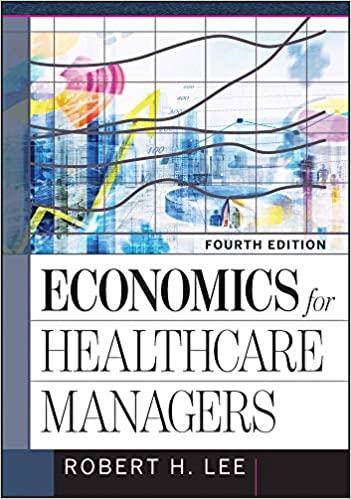The Louisiana State Board of Embalmers and Funeral Directors was formed in 1914 to regulate embalmers, funeral
Question:
The Louisiana State Board of Embalmers and Funeral Directors was formed in 1914 to regulate embalmers, funeral homes, and funeral directors and to handle consumer complaints. The board has one consumer representative. The other members all work in funeral homes (Louisiana State Board of Embalmers & Funeral Directors 2018).
Louisiana does not require burials in caskets, nor does it set any standards for caskets. Buying a casket online is perfectly legal. Nonetheless, Louisiana deemed it a crime to sell “funeral merchandise” without a funeral director’s license (Institute for Justice 2018).
The monks of Louisiana’s Saint Joseph Abbey have to work to support it. After a number of inquiries from consumers, they decided to sell the cypress caskets in which Saint Joseph Abbey has long buried its dead. A funeral director filed a complaint arguing that “illegal thirdparty casket sales place funeral homes in an unfavorable position with families” (Institute for Justice 2018). The Louisiana State Board of Embalmers & Funeral Directors moved to prevent the monks from selling caskets. To meet the board’s standards, each monk would have to earn 30 hours of college credit and apprentice for a year at a licensed funeral home. None of the skills thus gained would be related to coffin building.
After failing to get the law changed because of opposition from the funeral industry, the abbey sued the board. The abbey won in the district court in 2011 and in the US Fifth Circuit Court of Appeals in 2013. In its unanimous decision, the Circuit Court said, “The great deference due state economic regulation does not demand judicial blindness to the history of a challenged rule or the context of its adoption nor does it require courts to accept nonsensical explanations for regulation” (Institute for Justice 2018). The US Supreme Court rejected a petition for review, so the Circuit Court’s ruling stands (Institute for Justice 2018).
Discussion Questions
• Why were funeral directors so opposed to the monks making caskets?
• Why would licensing casket makers be a good idea?
• How does licensing casket makers protect the public?
• Does your state license funeral directors?
• In a state that licenses funeral directors, what is the composition of the board?
• Who sits on your state board that regulates pharmacy? Medicine? Dentistry?
• Are members of the profession a majority of the board?
• Is this case an example of regulatory capture?
• Would allowing entry into the casket market reduce prices?
• Are funerals subject to other anticompetitive laws and regulations?
• In medicine, licensure and certification coexist. Is this coexistence present in any other fields?
• How do licensure and certification differ in their protections for illinformed consumers?
Step by Step Answer:






